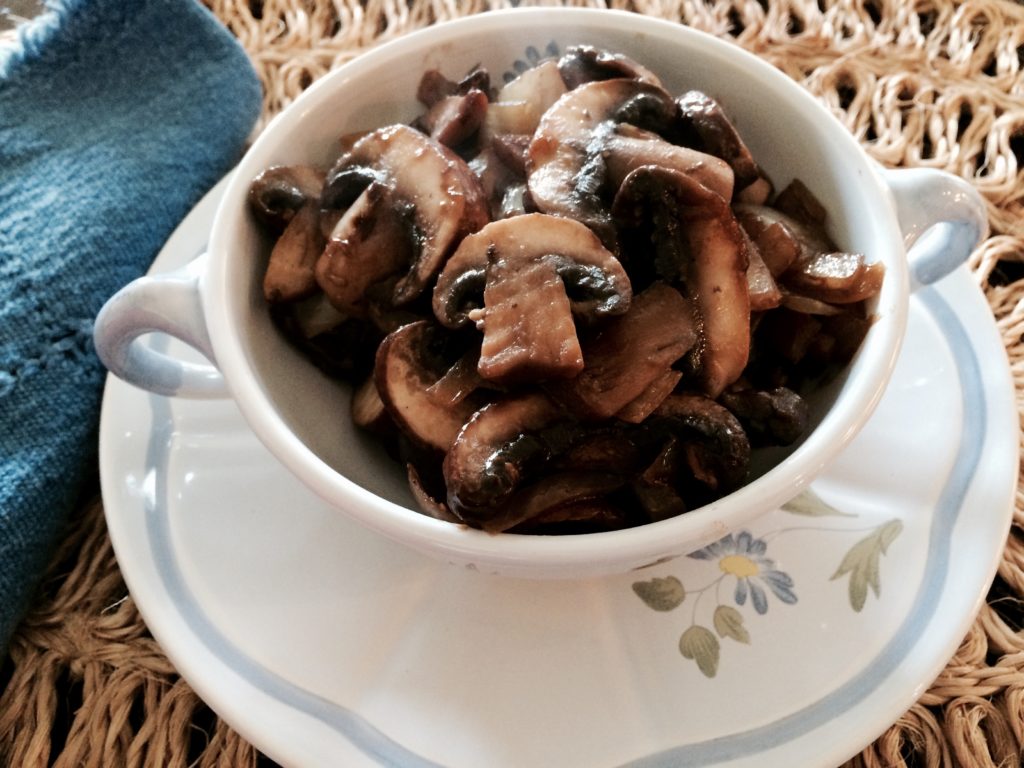Have you wondered about a cancer prevention diet? Well, according to a study conducted by The University of Western Australia in Perth, eating mushrooms daily may reduce breast cancer risk by nearly two thirds. The study, conducted in China, looked at more than 2000 women, half of whom had suffered from breast cancer.
Researchers found the women who ate a third of an ounce of fresh mushrooms every day had lowered their risk of developing a tumor by 64%.
Dried mushrooms didn’t have quite the same benefit, but still reduced the risk “by around half.”
The study also found that the women who regularly drank green tea, combined with their daily serving of fresh mushrooms, reduced their risk by 90%.
When reporting this study in 2009, The Telegraph went on to say that animal tests show mushrooms have “anti-tumor properties and can stimulate the immune system’s defenses.” Mushrooms might accomplish this by blocking “the body’s production of the hormone oestrogen, which can encourage the development of cancer.”
As the author of How to Be a Healthy Vegetarian, I promote a plant-based diet. A vegetarian diet “provides a variety of cancer-protective dietary factors,” according to a study published in The American Journal of Clinical Nutrition. A vegetarian diet reduces obesity.
This study’s author notes that obesity increases cancer risk, and that because the Body Mass Index (BMI) “of vegans is considerably lower than that of non-vegetarians,” a plant-based diet “may be an important protective factor for lowering cancer risk.”
According to Mladen Golubic, MD, PhD, the Medical Director for the Center for Lifestyle Medicine at the Cleveland Clinic who specializes in lifestyle medicine, cardiovascular disease reversal, integrative medicine approaches to lifestyle-related cancer management, there was a recent study “of more than 6,000 people in the best nationally representative dietary survey in the United States, those between 50 and 65 years old who reported high protein intake had a 75 percent increase in dying from any cause, a four-fold increase in cancer death risk during the following 18 years, and a five-fold increase in death from diabetes. Those with moderate intake had increased cancer death risk three-fold when compared with the low protein intake group!
It is important to note that these associations were either abolished or attenuated if the proteins were plant derived.
The composition of amino acids, building blocks of protein, derived from animals is different than from plant proteins. What we need are amino acids, not the proteins themselves.”
Mushrooms are a good part of a vegan diet, which is low in calories and are 80–90% water. which makes They are a great substitute for meat when you want to cut calories.
Mushrooms have been studied extensively for their health benefits because they have been found to aid the immune system. These dense, smooth, earthy fungi grow in thousands of varieties, and most of them are rich in potassium, selenium, copper, riboflavin, niacin, pantothenic acid, and B-complex vitamins. One medium Portobello mushroom has more potassium than a small banana.
Five medium cremini mushrooms have more selenium than a large egg or three ounces of lean beef. Plus, the copper in mushrooms helps you make red blood cells, which carry oxygen throughout your body.
Mushrooms are an excellent source of the antioxidants known as polyphenols, selenium, and ergothioneine. Ergothioneine is a master antioxidant, an amino acid containing sulfur. Sulfur is an extremely important nutrient, yet it is often overlooked.
There are many varieties of mushrooms, thousands of which are poisonous, so do not pick them in the wild. Always buy them from a reliable and reputable supplier. Look for mushrooms that are smooth, clean, and fresh in appearance.
To clean them, use a soft mushroom brush or wet paper towel to remove any parts that look dirty or mushy. You can rinse them, but do not soak them.
Keep them refrigerated in the original container until you’re ready to use them. They can keep up to a week in the refrigerator in a porous paper bag, but never put mushrooms in an airtight container and never freeze them.
Always trim the end of the stem before you use mushrooms. If the stems are too tough, just use the caps.
Adding mushrooms to dishes is easy. Thinly slice them for salads, pasta dishes, and sandwiches—or serve them as a side dish.
Grilling them is always great, and mushrooms make a tasty and healthy alternative to a burger. I love to sauté them with onions and butter to bring out the rich flavor of savory mushrooms.
Each mushroom has a different flavor, so experiment by trying different varieties.
For some easy, delicious recipes try my How To Be A Healthy Vegetarian cookbook ( 2nd edition). It’s a great place to start for easy, delicious vegetarian food and nutritional advice!
To view my award-winning books, go to this Universal author link: Author.to/nancyaddison
My second edition of my vegetarian book: myBook.to/vegetarianbook
The information from Nancy Addison and Organic Healthy Lifestyle LLC is not offered for the diagnosis, cure, mitigation, treatment, or prevention of any disease or disorder nor have any statements herein been evaluated by the Food and Drug Administration (FDA). We strongly encourage you to discuss topics of concern with your health care provider.
Medical Disclaimer:Information provided in this article, book, podcast, website, email, etc. is for informational purposes only. The information is a result of years of practice and experience by Nancy Addison CHC, AADP. However, this information is NOT intended as a substitute for the advice provided by your physician or other healthcare professional, or any information contained on or in any product label or packaging.
References
“Eating mushrooms daily ‘may cut breast cancer risk by two thirds’.” (16 March, 2009). The Telegraph. http://www.telegraph.co.uk/news/health/news/5000582/Eating-mushrooms-daily-may-cut-breast-cancer-risk-by-two-thirds.html
Craig, Winston J. (11 March, 2009). “Health effects of vegan diets.” The American Journal of Clinical Nutrition, 89(supplement): 1627S-1633S. http://ajcn.nutrition.org/content/89/5/1627S.full.pdf
The source of the 6000 person study is the Cleveland Clinic, Mladen Golubic, MD, PhD is the Medical Director for the Center for Lifestyle Medicine at the Cleveland Clinic and specializes in lifestyle medicine, cardiovascular disease reversal, integrative medicine approaches to lifestyle-related cancer management. Here is the link:https://my.clevelandclinic.org/health/transcripts/1602_benefits-of-plant-based-diets
copyright@nancyaddison2015





